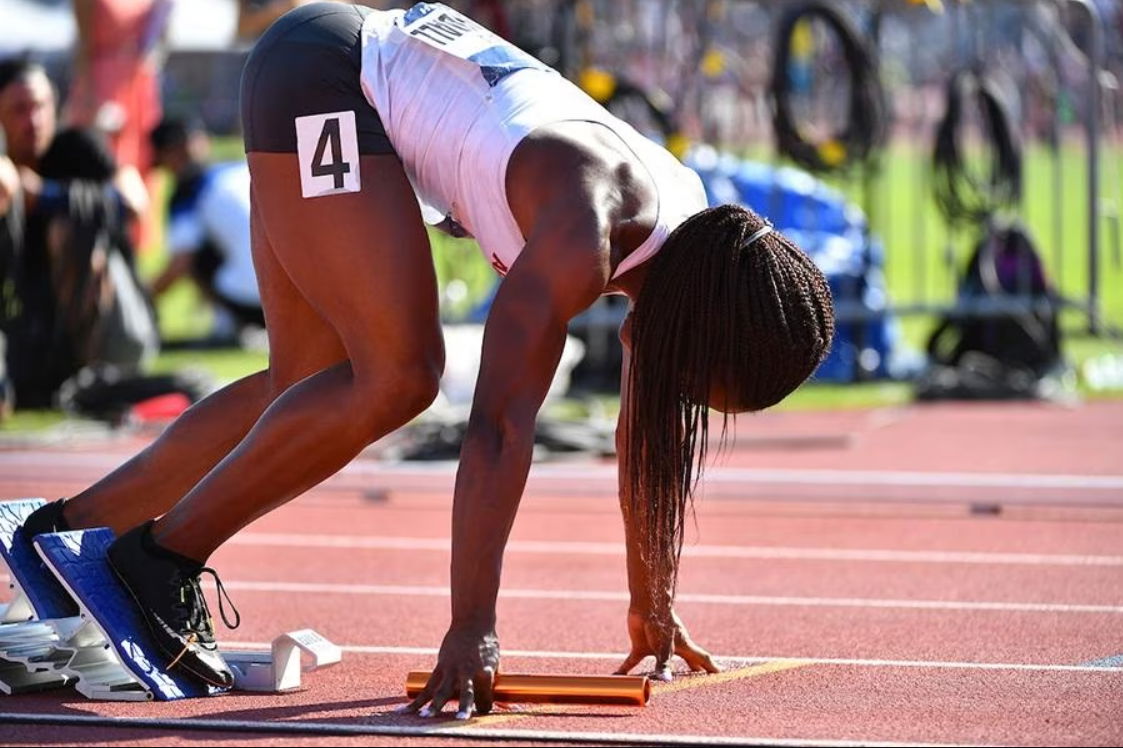

Conversations about sports are starting to center on how social media affects athletes. Professional individuals have to deal with the demands of social media criticism on top of the difficulties of competition. One incident involving Head Coach Mike Holloway of the Florida Gators in the track and field scene also serves as an example of how harmful this duality can be. While social media can be aptly termed as the bane of our existence, how did Mike Holloway stake his claim?
Watch What’s Trending Now!
Mike Holloway underlined the detrimental effects of social media on athletes in a tweet published by FloTrack. The remarks Holloway made were part of a video in which he talked about how social media might cause athletes to lose focus, especially in the lead-up to important competitions like the NCAA championship.
When criticizing the impact of social media on athletes, coach Mike Holloway did not hold back. According to Holloway, “Social media is the worst thing that ever happened.” This was said in a FloTrack video. He clarified how it might be harmful to an athlete’s mental health for them to become preoccupied with getting likes and attention. “So, you know, everybody’s looking for likes and looking for attention,” Holloway noted the focus everyone is craving for. Furthermore, he added the main spotlight which is the negativity of dislikes on athletes’ socials stating, “And then they get the 1 or 2 people that are against what they say. So they can have 100 people like something, but they focus on the 1 or 2 people that dislike it, and it just ruins their day. “
ADVERTISEMENT
.@GatorsTF Coach Mike Holloway talked about the importance of helping athletes navigate social media heading into the NCAA championships.#NCAATF pic.twitter.com/HUWqpmUMLL
— FloTrack (@FloTrack) June 4, 2024
Holloway illustrated his argument by relating a particular incident. He brought up a sprinter who was among the favorites to win the 400-meter race, but who struggled after seeing something unfavorable on social media. Because the remark was made on his birthday, the sprinter’s performance suffered, and he felt lost and disappointed during the meeting. Moreover, Mike Holloway added, “Somebody posted something bad about him because it was his birthday and ran terribly. And so we have to we have to be aware of those things.”
The coach pointed out how important it is to be aware of these problems. He pointed out that an athlete’s performance could be greatly impacted by these kinds of petty distractions. Holloway’s observations show a crucial component of sports psychology that is often missed in the dazzle of social media interactions.
ADVERTISEMENT
Track and Field’s heated discussions on media
Within the track and field community, disagreements about world records can lead to heated arguments. Prominent sprinter Noah Lyles has expressed his discontent with the way the media is covering these conversations. An incident involving a tweet from Citius Mag brought attention to the persistent problem. Many people, including Lyles, find it annoying when modern competitors are constantly compared to Usain Bolt because it minimizes,discounts and diminishes their accomplishments.
ADVERTISEMENT
“Do I think Fred Kerley is going to break the WR in his next race? No.
Do I think any athlete is going to break the WR in 2024? No.
Do I think any athlete is going to break the WR in the next three to five years? No.” – @EmeroleAnderson https://t.co/yrONumqbaY
— CITIUS MAG (@CitiusMag) May 16, 2024
The 6x world champion Lyles took issue with a headline in Citius Mag. In the remarks, Anderson Emerole expressed doubt that athletes will soon break Bolt’s record. Lyles retorted, pointing out that players’ statements and intentions are frequently misrepresented in the media. This false statement may put unwarranted pressure and negativity on others. Noah Lyles responded with a statement expressing his disapproval, saying, “I actually don’t like this headline. I watched the video this was taken from and @EmeroleAnderson talked about something VERY important. He talked about even if we the fans don’t believe an athlete can run a time doesn’t mean we should demean them for making goals.” This tweet brought Lyles’ dissatisfaction with the generally unhappy tone of these conversations to light.
It puts a lot of pressure on today’s competitors to compare themselves to the gold standard i.e Usain Bolt, which could harm their physical and mental well-being in the process, and also strip them of their individuality. Fred Kerley, another sprinter, also entered the conversation. In a brief one-word reply, “Noted,” to the same Citius Mag tweet, he declared his intention to shatter the record. Thus, worries over how social media usage affects sports performance are on the rise. Techniques that reduce the detrimental effects of social media are crucial as the track and field community navigates these difficulties.
ADVERTISEMENT
ADVERTISEMENT
ADVERTISEMENT
ADVERTISEMENT

